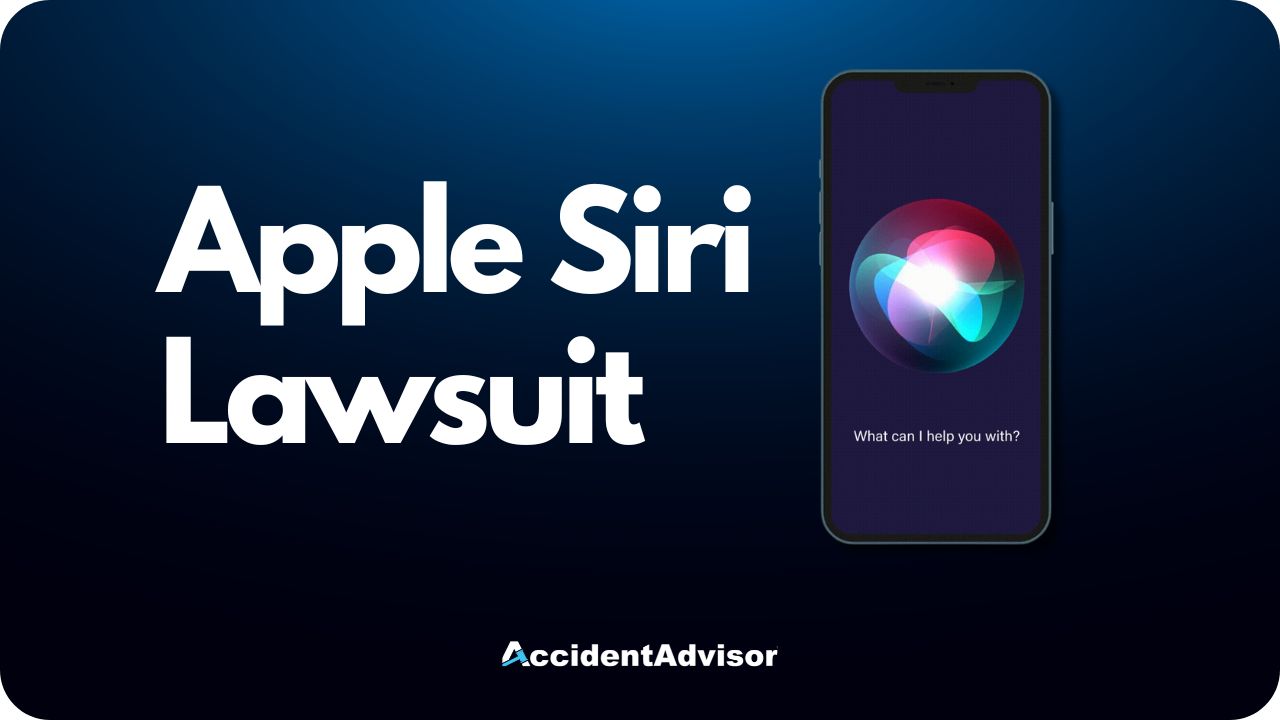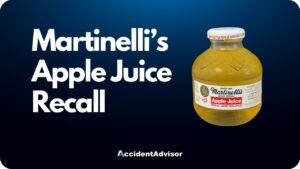Did you know nearly 30% of smartphone users in the U.S. worry about their voice assistants listening in on private talks? This fact shows how big the Siri lawsuit is. It has led to a big legal deal with Apple. We’ll look into how this affects tech companies and their users.
The Siri lawsuit has made us think more about privacy online. It has started big talks in the tech world and among everyone else. We’ll dive into the start of the lawsuit, Apple’s answer, and what led to the settlement. Join us as we dive into the Siri lawsuit and what it means for our privacy and the companies we trust.
Key Takeaways
- The Siri lawsuit highlights growing concerns over privacy breaches by voice assistants.
- A significant portion of smartphone users in the U.S. are worried about eavesdropping.
- The outcome of this lawsuit has set a precedent for future legal actions involving tech companies.
- Apple’s legal response to the Siri case could influence its approach to privacy in future products.
- The settlement brings to light ongoing issues of user data security in the digital era.
- The case has sparked widespread debate among legal experts and technology enthusiasts alike.
- Understanding the Siri lawsuit helps users make informed decisions about their digital privacy.
Background of the Siri Lawsuit

The Siri lawsuit came from big privacy worries. Users felt upset because Siri was recording their conversations without asking. This made many people lose trust in Siri.
People who felt their privacy was broken started legal fights. They thought Siri was wrong to record their talks without permission. This led to a big lawsuit against Apple.
The lawsuit said Apple didn’t follow privacy laws. This made the court take action. They wanted to stop Siri from breaking privacy rules again.
The lawsuit was important to fix the problem and make a new rule. It was about stopping Siri from collecting data without permission. This helped understand the big issues with privacy.
Details of the Settlement Agreement
The Siri lawsuit settlement is a big deal for Apple. The company agreed to pay $95 million to settle a lawsuit. This settlement agreement siri lawsuit will give money to users and push for better privacy.
About 30% of the money, or $30 million, will go to lawyers and legal costs. The rest will go to people who used Siri. They can get up to $20 for each device they had.
This Siri lawsuit compensation is for people in the U.S. who used Siri from 2014 to 2024.
Apple also promised to change its privacy policies. They will be more open about how they use Siri. This is to stop similar problems in the future. Contractors will also have less access to recordings.
Here is a summary of the details:
| Aspect | Details |
|---|---|
| Total Settlement Amount | $95 million |
| Attorneys’ Fees and Legal Expenses | $30 million |
| Compensation for Users | Up to $20 per device |
| Eligibility Period | September 17, 2014 – December 31, 2024 |
| Eligible Devices | iPhone, iPad, MacBook, Apple Watch, HomePod |
| Claims Deadline | May 15, 2025 |
This breakdown shows what the settlement agreement siri lawsuit means. It tells users about their rights and how to get monetary compensation.
Impact on User Privacy

The recent Siri class action settlement has greatly affected user privacy. Apple quickly put in place stronger privacy measures to protect users’ personal info. These steps have greatly improved user privacy protections Siri, cutting down on unauthorized data collection.
Thanks to these stronger privacy measures, users now feel safer when using Siri. Apple has brought in new privacy rules. This shows the company’s strong commitment to keeping user data safe.
These privacy updates set a new standard in the tech world. They show a bigger move towards better user privacy protections Siri. This change not only lowers risks but also builds trust with users.
- Enhanced encryption protocols
- Minimized data retention
- Increased transparency in data usage policies
What to Read Next
- The odds of dying in a car crash are higher than you think — here’s how to reduce your risk and protect yourself on the road.
- Have you been affected by the Boar’s Head recall? Find out if your favorite deli meat is on the list — avoid these products to stay safe.
- The first 48 hours after an accident can make or break your settlement — this is what to do after a car accident.
User Eligibility for Compensation
Many users are eager to know if they can get compensation from the $95 million Siri lawsuit settlement. If you had a Siri-enabled device from September 17, 2014, to December 31, 2022, you might be eligible. This includes iPhones, iPads, MacBooks, Apple Watches, and HomePods.
- iPhone: September 2014 – December 2022
- iPad: September 2014 – December 2022
- MacBook: September 2014 – December 2022
- Apple Watch: April 2015 – December 2022
- HomePod: February 2018 – December 2022
Those who qualify can get up to $20 for each device they owned during this time. The claim form will be available by February 2025. You’ll need to submit your claim by May 15, 2025.
| Device | Eligibility Period |
|---|---|
| iPhone | September 2014 – December 2022 |
| iPad | September 2014 – December 2022 |
| MacBook | September 2014 – December 2022 |
| Apple Watch | April 2015 – December 2022 |
| HomePod | February 2018 – December 2022 |
About 30% of the settlement, or $30 million, will go to lawyers and legal costs. So, it’s important to file your claim quickly to get your share.
If you’re not sure if you qualify, check if you owned a Siri device during the eligible time. Start the claims process as soon as you can. Keeping up with the legal process will help you get your compensation.
Response from Apple and Affected Users
Apple quickly responded to the Siri lawsuit, showing they take user privacy seriously. They released a statement saying they need to improve their privacy policies. They promised to protect customer data and prevent future issues.
Apple agreed to make changes to settle the lawsuit. They will use better encryption and set stricter rules for apps. This will make sure users’ voice recordings are safer.
People’s reactions to the Siri lawsuit have been mixed but mostly positive. Many are glad Apple is taking steps to protect their data. On social media and forums, users are cautiously optimistic.
Here are some key points from user feedback:
- Apple’s quick response and actions have helped restore trust.
- Some users still doubt Apple’s future privacy promises.
- Everyone wants to see real changes made.
Even with some doubts, most users support Apple’s efforts. The public’s reaction to the Siri lawsuit is important for Apple’s future in protecting user privacy.
Siri Lawsuit Settlement: Legal Perspectives
The Siri lawsuit settlement has caught a lot of attention. Many expert legal opinions have been shared about it. They talk about its big impact on future tech and privacy cases.
Experts say the legal perspectives on Siri settlement are important. They think it could be a model for how tech giants handle privacy. This could change how companies like Apple work and the laws about user data and AI.
Expert legal opinions also mention how the settlement might affect other tech companies. They think it could push them to protect user privacy better. This shows that tech advancements need to be matched with strong privacy rules.
Looking at the legal expert analysis Siri lawsuit, this case is key for the future. It’s about making sure tech companies are open and responsible. As we look at expert opinions Siri case, we see big changes coming in privacy laws. The Siri lawsuit is a big step towards better protection in AI technology.
Conclusion
As we wrap up our Siri lawsuit overview, it’s key to sum up the complex issues and outcomes. Apple has agreed to a $95 million settlement to fix privacy problems with Siri. This deal shows how vital it is to keep user data safe, given how much we rely on digital helpers and AI today.
The Siri settlement’s effects go beyond just money. From 2014 to 2019, many users talked to Siri without knowing their chats were recorded. Apple has promised to fix this, offering up to $20 per device to those affected. Yet, only a small percentage of those who could claim are expected to do so. This highlights the need for constant awareness and action from users.
Looking back, this case is a big deal for digital privacy and how companies act. It sets clear rules for tech giants. It’s important to stay alert and informed. I suggest you sign up for our Recalls and Class-Actions newsletter. This way, you and your family can avoid future problems. Remember, being careful online is a team effort.
FAQ
What prompted the Siri lawsuit against Apple?
The Siri lawsuit started because people felt their privacy was broken. They said Siri recorded their talks without asking. This made users upset and led to a big lawsuit.
What were the privacy concerns related to Siri?
People worried Siri was listening in without permission. They felt their private talks were being recorded. This made them take legal action to protect their privacy.
What does the settlement agreement entail?
The deal means Apple will pay users who were affected. Apple also has to make big changes to keep users’ data safe. These changes are to stop Siri from collecting data without permission.
How does the settlement impact user privacy?
The deal made Apple make Siri’s privacy better. Now, Siri can’t collect data without permission. This makes users feel safer and more confident in Apple’s privacy promises.
How can users verify their eligibility for compensation?
To see if you can get money, check the settlement rules. You’ll need to sign up for the process. There’s a set time for when you’ll get your money.
What was Apple’s response to the lawsuit and settlement?
Apple agreed to the deal and said they’re making Siri safer. They talked about how they’re working to protect users’ data better. They want to make sure this doesn’t happen again.
How did affected users react to the settlement?
People had different feelings about the deal. Some were happy with the money and Apple’s promise to do better. Others were still worried about their privacy in the future.
What do legal experts say about the Siri lawsuit settlement?
Lawyers think this deal could be a big deal for future privacy cases. They say it might make other companies think about protecting users’ data more. It could lead to new rules and better privacy for everyone.
Don’t Miss
- If you’ve been injured in an accident — don’t let the insurance company win. Maximize your settlement with free claim assistance.
- Car insurance premiums in America are through the roof — and only getting worse. But 5 minutes could have you paying as little as $29/month.
- Protect yourself and earn cash with recall and class-action alerts — delivered straight to your inbox. Sign up for the AccidentAdvisor Newsletter.

Rocky Horton
Author













